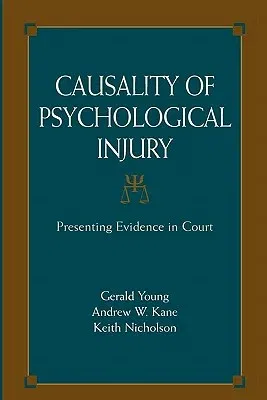Gerald Young
(Author)Causality of Psychological Injury: Presenting Evidence in CourtPaperback, 29 October 2010

Qty
1
Turbo
Ships in 2 - 3 days
In Stock
Free Delivery
Cash on Delivery
15 Days
Free Returns
Secure Checkout
Print Length
648 pages
Language
English
Publisher
Springer
Date Published
29 Oct 2010
ISBN-10
1441942149
ISBN-13
9781441942142
Description
Product Details
Book Format:
Paperback
Country of Origin:
NL
Date Published:
29 October 2010
Dimensions:
23.39 x
15.6 x
3.38 cm
ISBN-10:
1441942149
ISBN-13:
9781441942142
Language:
English
Location:
New York, NY
Pages:
648
Publisher:
Weight:
911.72 gm

